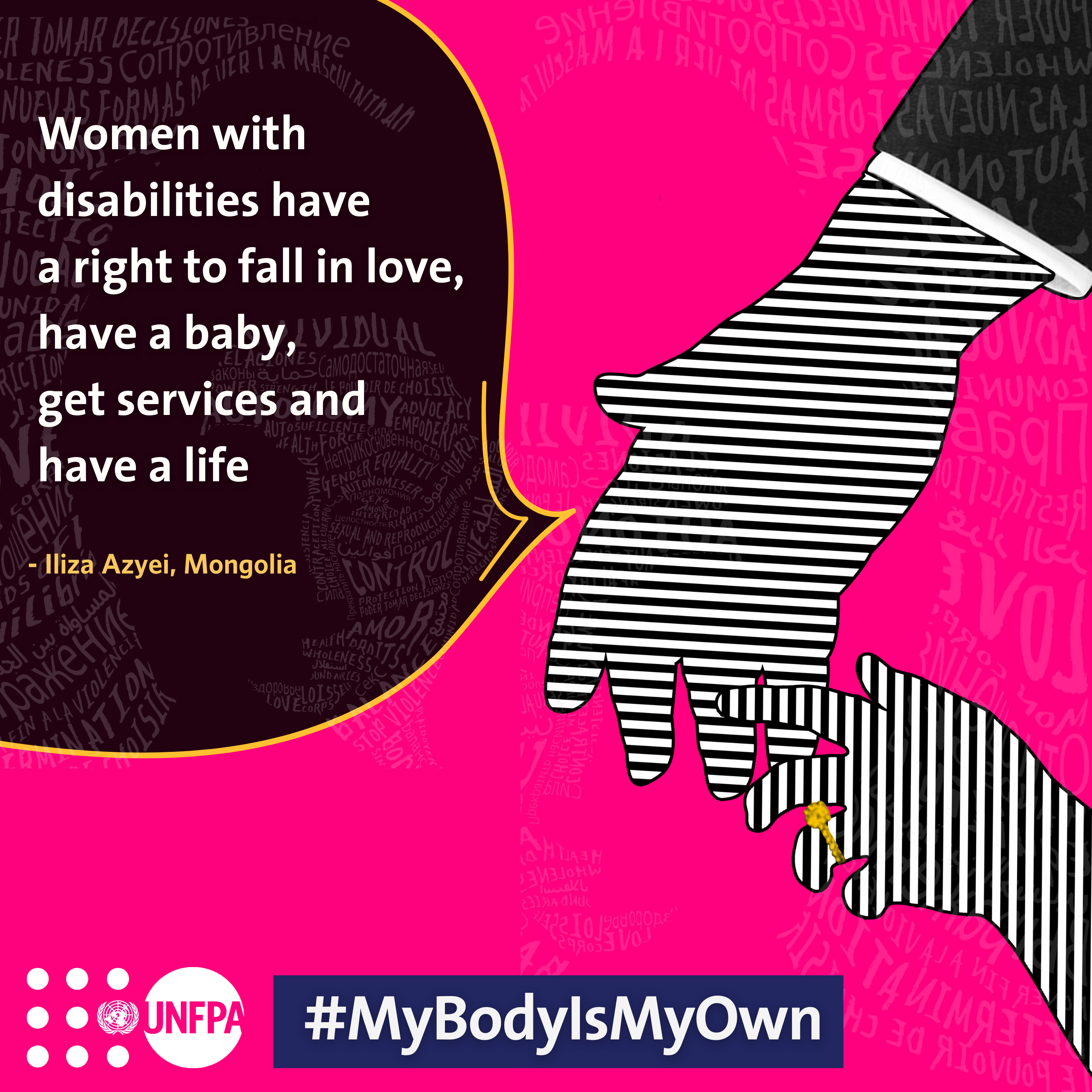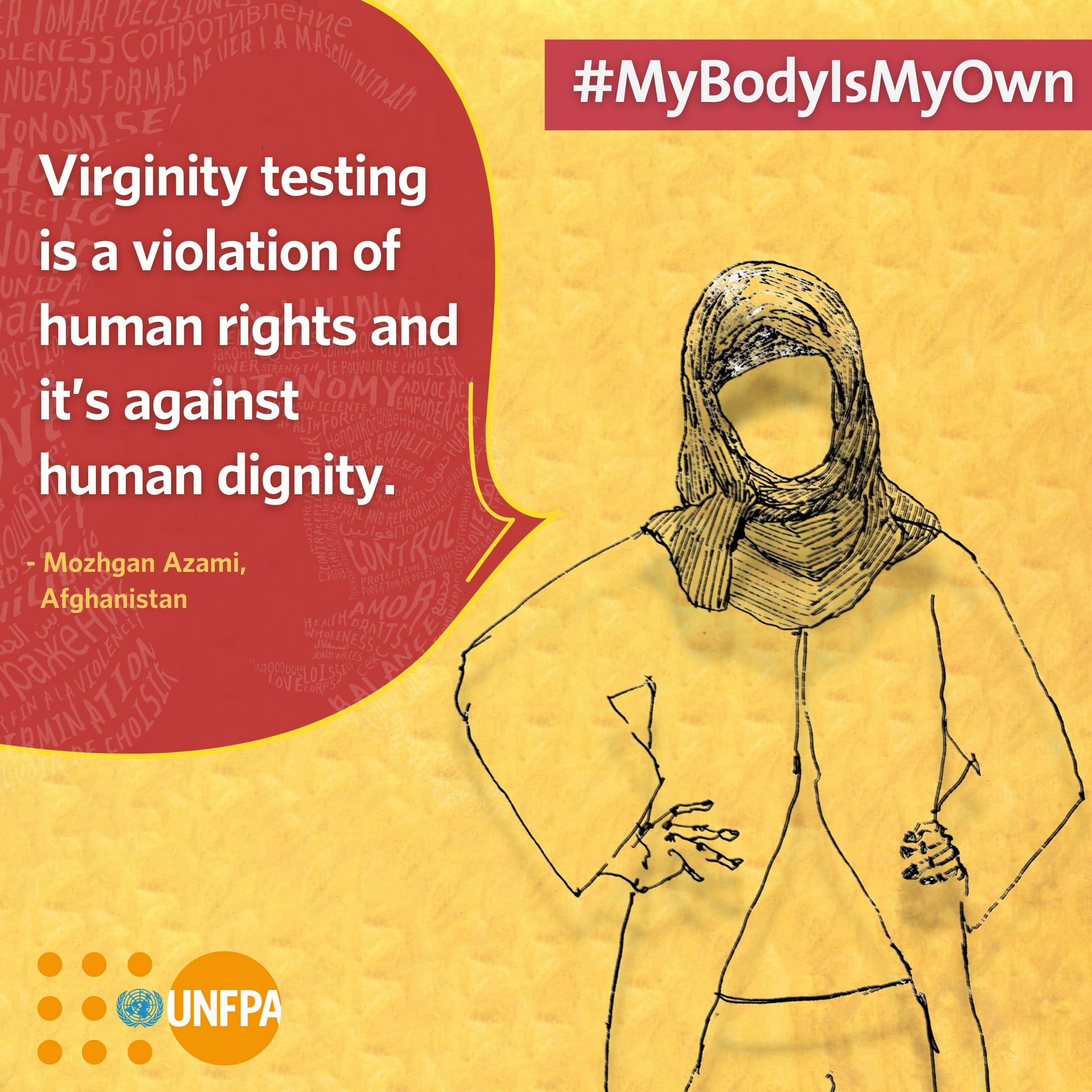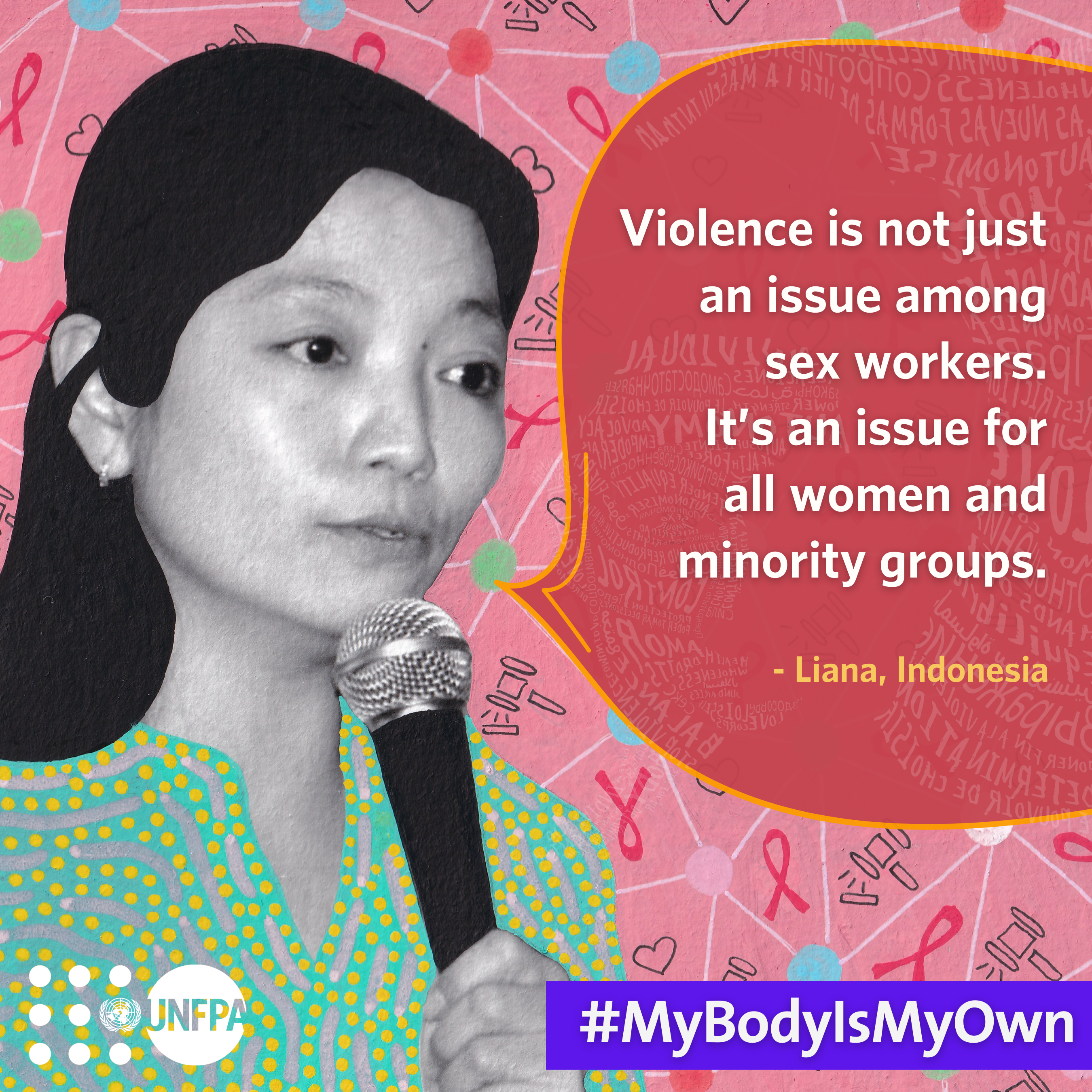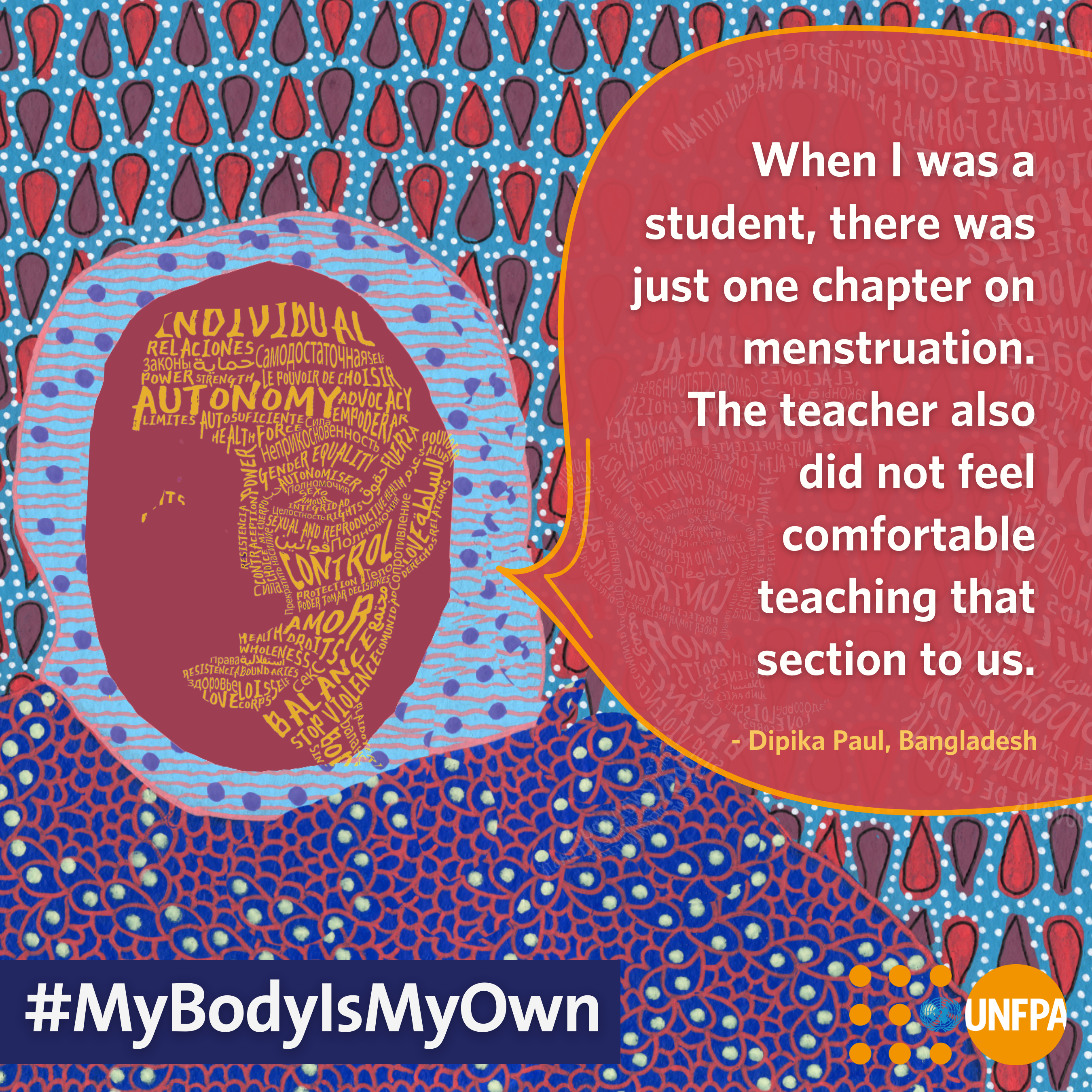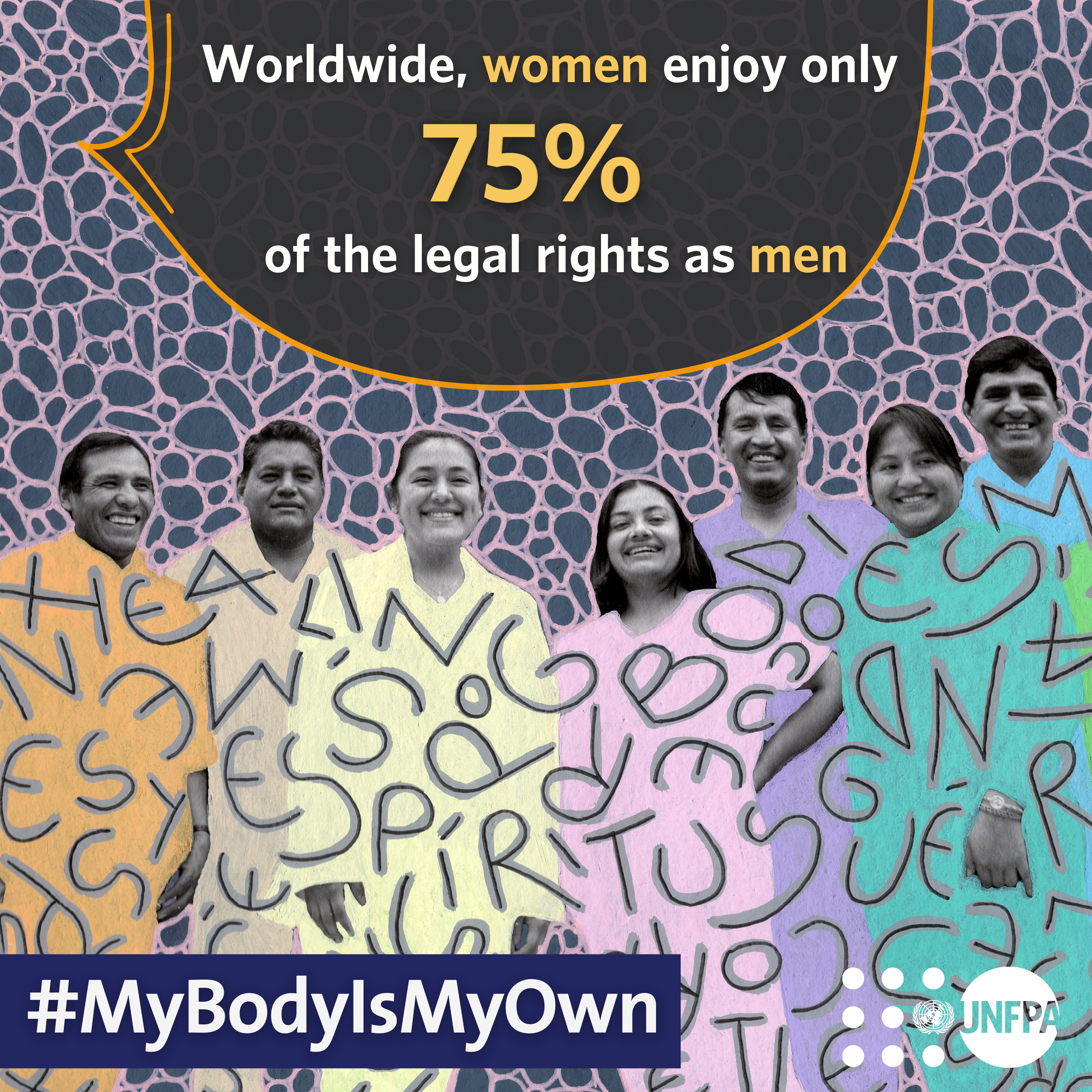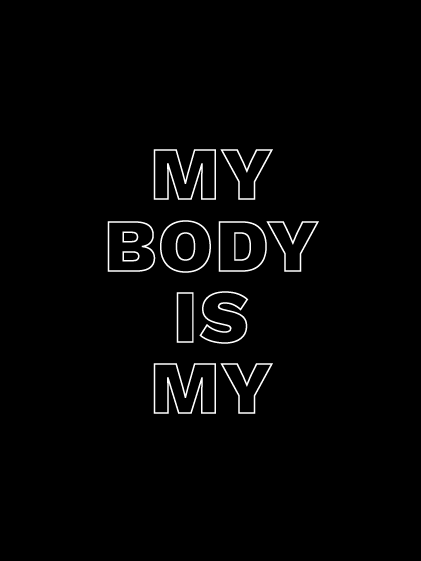On May 20, 2021, the UNFPA Asia-Pacific Regional Office launched the UNFPA flagship State of World Population Report, My Body is My Own, at an online event under the auspices of the Generation Equality Forum, involving the Embassy of France and the Embassy of Mexico in Thailand, along with UN Women.
Our Regional Director BJORN ANDERSSON explained why UNFPA focused on the theme of bodily autonomy for this year's report - and how this fundamental right for all is so crucial to sustainable development.
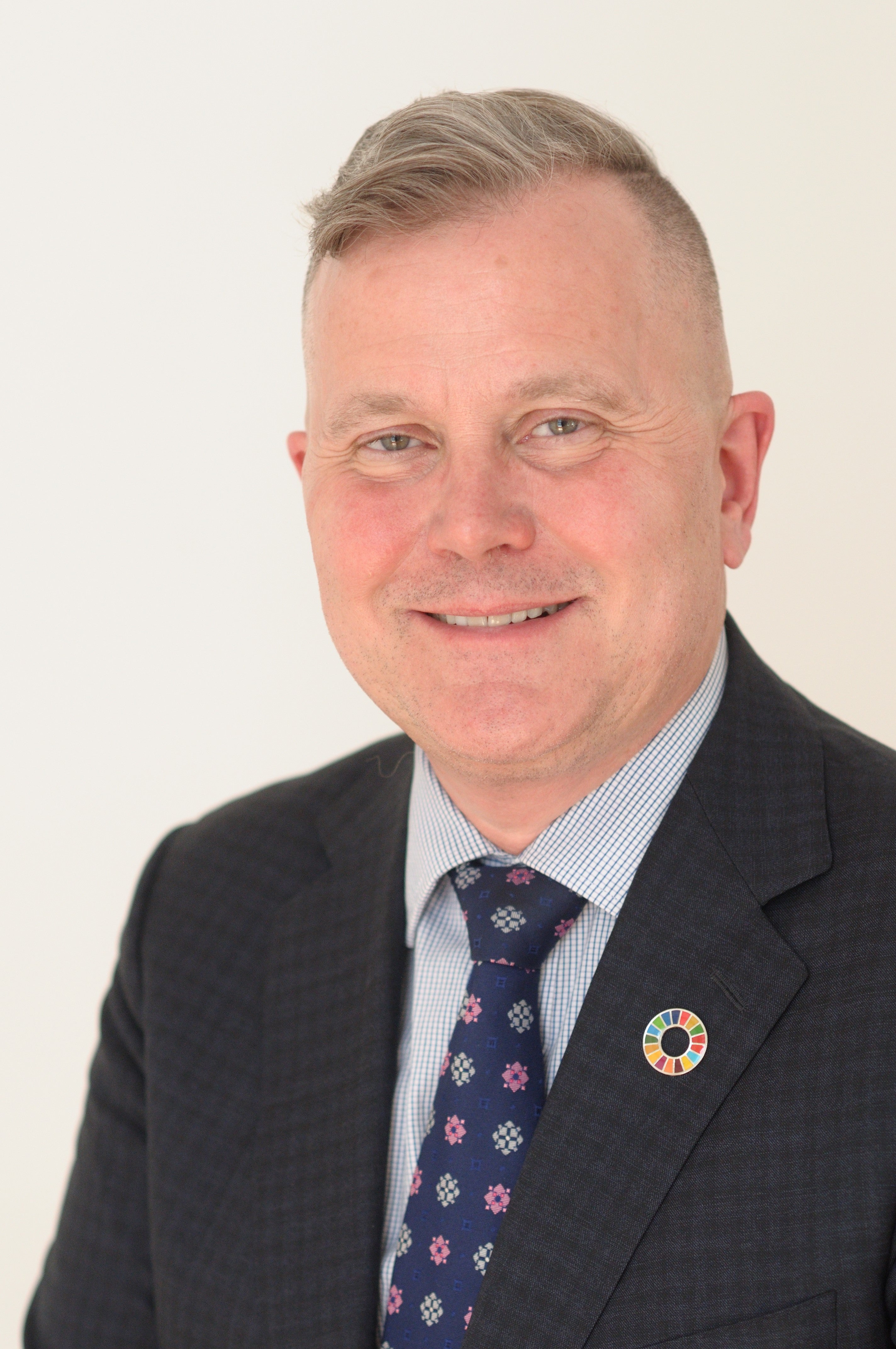
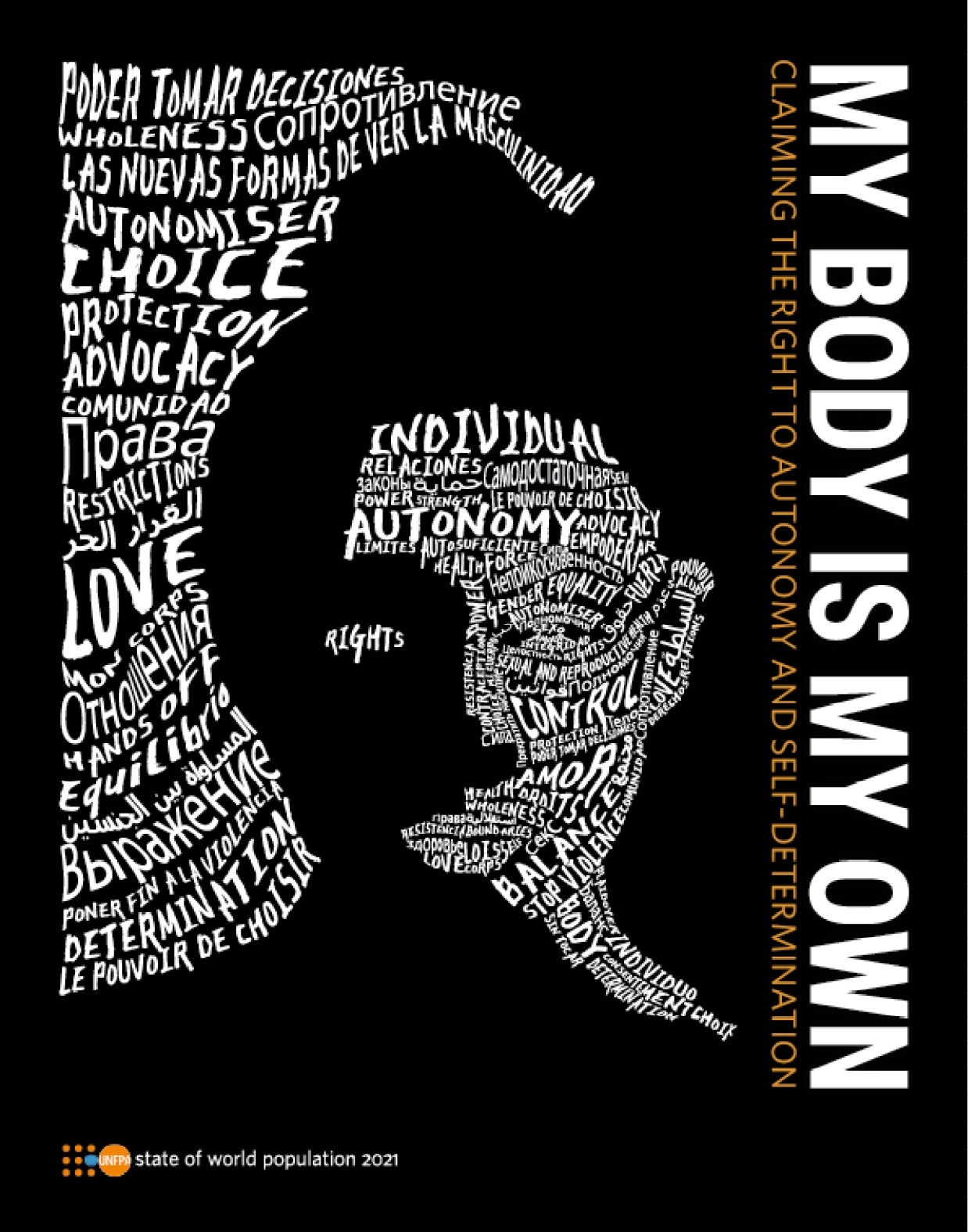
Your Excellency, Ambassador Thierry Mathou, UN Women Regional Director Mohammad Naciri, distinguished speakers and panellists, colleagues and friends joining us today,
On behalf of all of us at the UNFPA Asia-Pacific Regional Office in Bangkok, a very warm welcome to the regional launch of our global flagship State of World Population Report 2021, titled My Body is My Own, the first-ever United Nations report on bodily autonomy.
Let me start by explaining what this report is all about and why it is relevant today.
Most likely, at this very moment, a girl somewhere in the Asia and the Pacific region is being told today will be her wedding day. She has just turned 13.
A woman has been walking for a couple of hours to her village health centre to seek contraception. When she arrives she’ll be informed that there will be no prescription without her husband’s consent.
Somewhere today an adolescent girl is discovering that she is expected to undergo a rite of passage, forever to be wounded by female genital mutilation.
These girls and women are unfortunately not exceptions.
All around the Asia-Pacific region and globally, millions of women and girls are not in control over their bodies and their lives. Women have a fundamental right to make their own decisions about their bodies. But how many women can actually claim they have the power to exercise that right?
Our new UNFPA State of World Population report shows that, in countries globally where we have data, nearly half of women lack the power to make their own decisions about whether to have sex with their partner; about whether to use contraception; and about whether to see a doctor. In the eight Asia-Pacific countries where data on these three issues are available, only 59.2 per cent of women are fully empowered to exercise them.
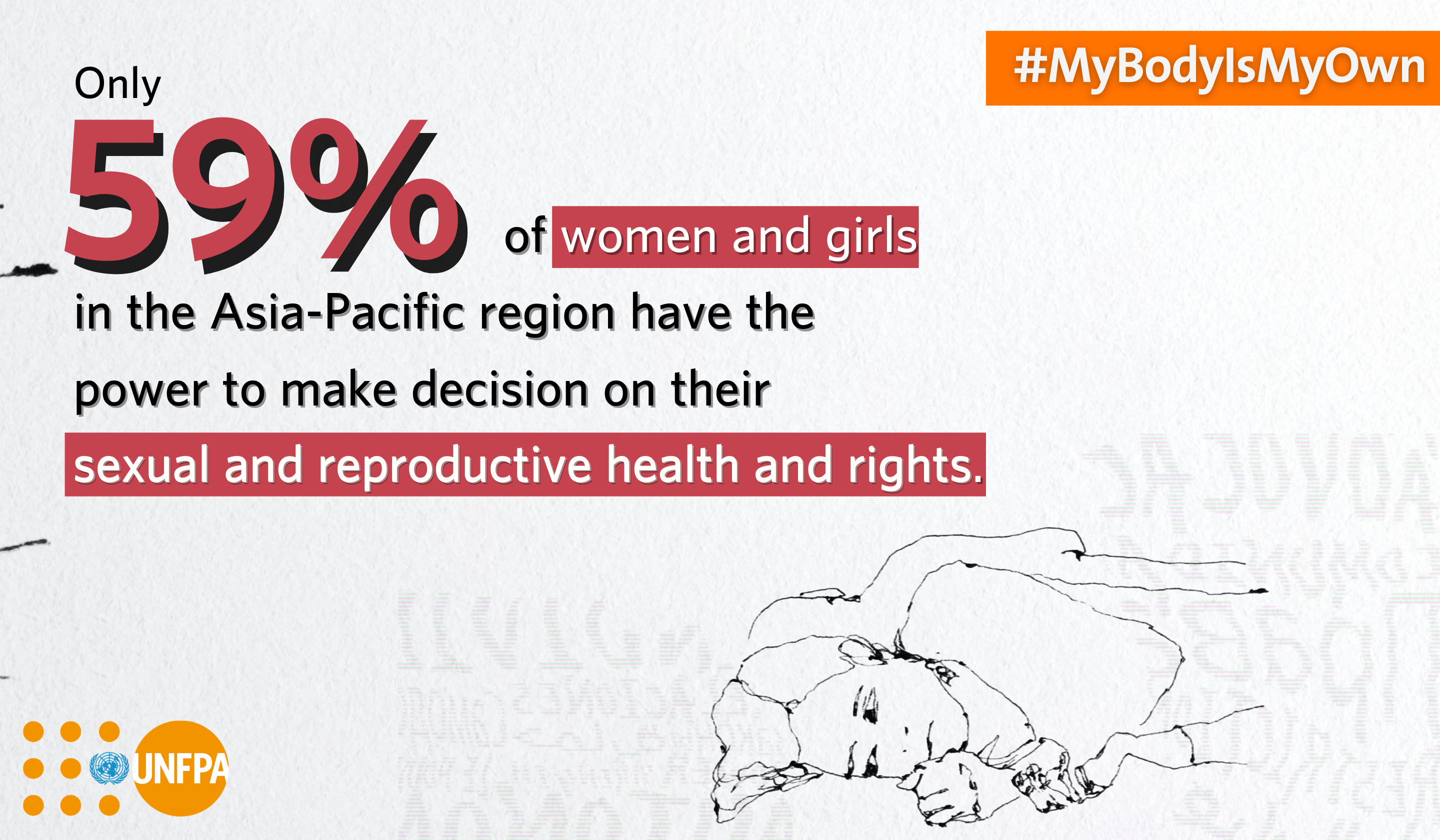
Often these decisions are made or influenced by others, whether partners, families, societies or even governments. The right to the autonomy of one’s body means that we must have the power and agency to make choices, without fear of violence or coercion or having someone else decide for us.
Intertwined with bodily autonomy is the right to bodily integrity, where people live free from physical acts to which they do not consent. For many people, but especially women and girls, life is marked with violations to their bodily autonomy and integrity.
We see this when a lack of contraceptive choices leads to unplanned pregnancy.
We see this in the terrible bargain made to exchange unwanted sex for a home and food.
We see this in life-derailing practices such as child marriage, so common in South Asia and elsewhere; as well as in gender-biased sex selection fueled by son preference – all of these witnessed to varying degrees in Asia-Pacific.
Autonomy is violated when people with diverse sexual orientations and gender identities are criminalized as they are in so many countries in Asia-Pacific, or cannot even walk down a street without fearing assault or humiliation.
Or when people with disabilities are stripped of their rights to self-determination, to be free from violence, to enjoy a safe and satisfying sexual life, and to exercise the right to start their own families.
Some violations, such as rape, may be criminalized but not always prosecuted. Other violations go unchallenged because they are reinforced by community norms, practices and laws.
The right to bodily autonomy is violated when a husband or partner forces a woman to have an abortion or impregnates her against her will. Bodily autonomy is also violated by practices like so-called “corrective rape”, “honour killings” and “virginity tests”, all of which we see in several countries in our region.
This list goes on and on.
And what was bad has now become worse with the COVID-19 pandemic, which has further diminished women’s autonomy by increasing sexual and other gender-based violence, new barriers to health care, unplanned pregnancies, and job and education losses.
At this very moment, as we work to address a global crisis and attempt to build back better from it, we must commit to addressing the impediments to bodily autonomy all the more.
UNFPA has long been working with Governments, civil society and UN partners in Asia and the Pacific to tackle these challenges.
Our UNFPA Supplies programme has been providing essential family planning commodities to developing countries, helping women and couples choose when or if to have children.
Our maternal health programmes encourage governments to invest in and professionalise midwifery, better ensuring safe pregnancy and childbirth, and reducing maternal mortality.
Our partnerships with UNICEF to end child marriage and female genital mutilation are showing significant results - as is our partnership with UN Women under the UNiTE working group to tackle the scourge of gender-based violence.
And, we bring all of these issues together in our humanitarian response interventions for women and girls impacted in the world’s most disaster-prone region.
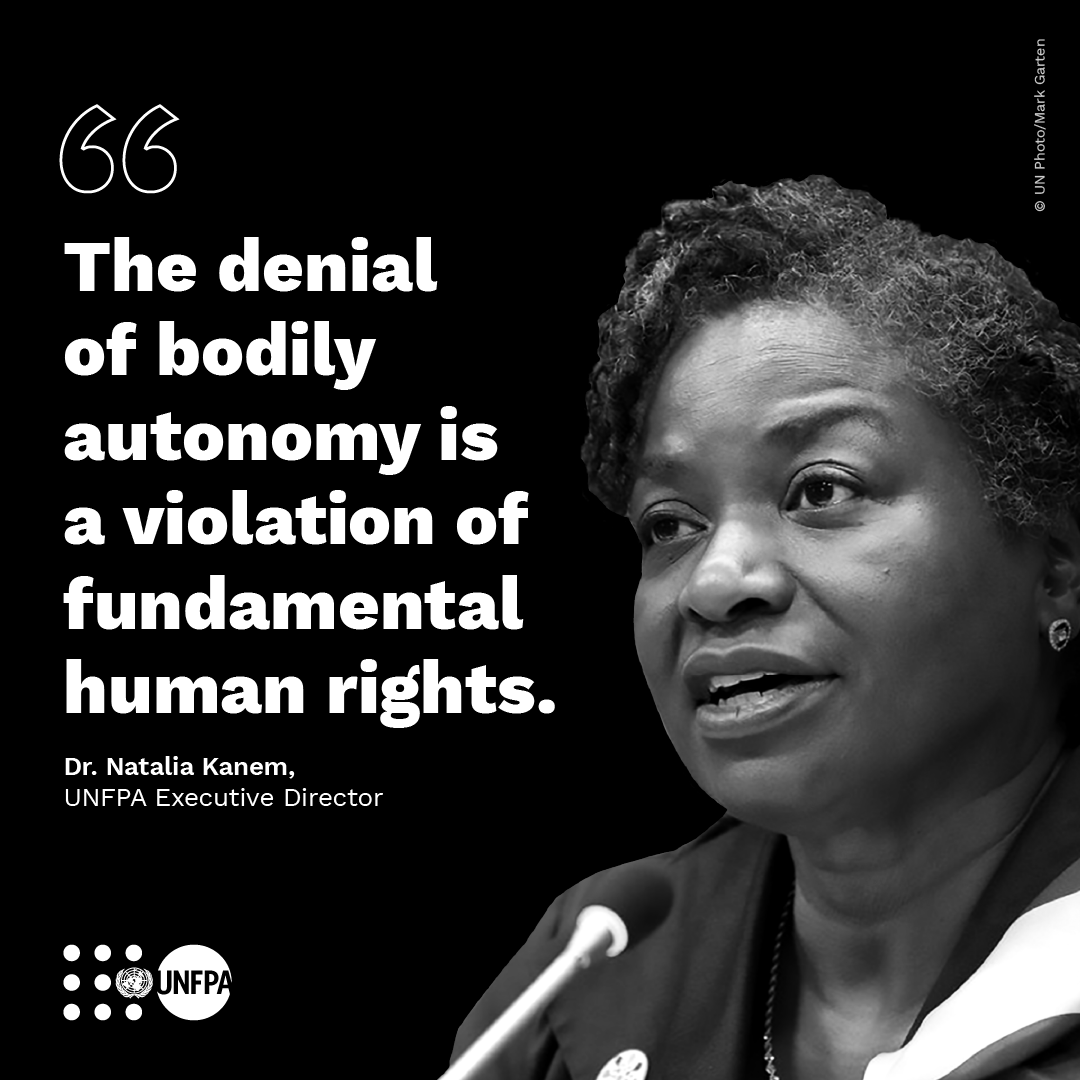
Although there are many impediments to bodily autonomy, gender inequality is perhaps the most pervasive one, as the State of World Population Report makes abundantly clear.
Gender-unequal norms and attitudes lead to power imbalances in relationships that restrict women’s decisions, particularly when it comes to sex and pregnancy - or drive the expectation that women must defer to their husbands or partners in all aspects of their lives.
Real, sustained progress therefore necessitates action at the grass-root level and depends on uprooting gender inequality and all forms of discrimination, and transforming the social and economic structures that maintain them.
In this, men must become allies. Many more men should commit to stepping away from patterns of privilege and dominance that profoundly undercut bodily autonomy.
While a bold goal, gender equality is also an internationally agreed one.
Gender equality underpins key global frameworks including the landmark Programme of Action that stemmed from the 1994 International Conference on Population and Development, or ICPD; the Beijing Platform for Action that followed a year later; and, today, the 2030 Agenda and its Sustainable Development Goals or SDGs.
Governments can also fulfill their obligations to strengthen gender equality under human rights treaties, such as the Convention on the Elimination of All Forms of Discrimination against Women, or CEDAW, and the Convention on the Rights of the Child. This also means passing and implementing laws that enshrine gender equality in its various facets, including bodily autonomy.
In so doing, governments can lead the way in altering the social, political, institutional and economic structures that reinforce and thrive on gender-unequal norms.
But we must look beyond obligations. We must identify opportunities.
This includes building and strengthening alliances that bring together governments, civil society and supportive partners including the UN family – to truly forge a coalition of the willing, all the more crucial at this moment in time.

Ultimately, a woman who has control over her body is more likely to be empowered in other spheres of her life. She gains not only in terms of autonomy, but also through advances in health and education, income and safety. She is more likely to thrive, and so is her family.
When we see these benefits accrue across whole societies, we understand that communities and countries will flourish when all people are empowered to make their own informed decisions about their bodies and futures. Realizing autonomy will help us realize a world of greater justice and human well-being, a world that can truly be gender-equal, a world which benefits us all.
UNFPA is fully committed to leading efforts in realizing this important goal in Asia and the Pacific together with partners. Thank you for all your support and for taking this journey with us.
I look forward to listening to our compelling speakers whose stories, work and experiences will illustrate many of the themes our Report touches upon.
Thank you all once again for joining us.

